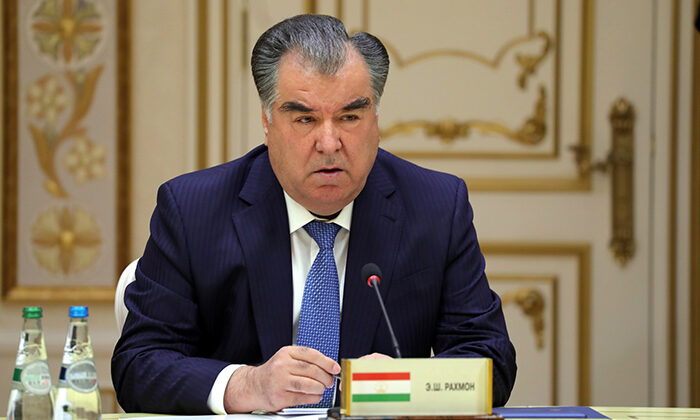
Emomali Rahmon, 67, is a politician who has served as President of Tajikistan since 1994. His rule is regarded by Human Rights Watch as a dictatorship. COURTESY PHOTO.
Four churches in Tajikistan, a country in central Asia where 96 percent of the population is Muslim, have been fined for their participation in a Bible translation project.
According to a report by The Voice of the Martyrs (VOM), an international nonprofit organization whose mission is to defend the human rights of persecuted Christians, between August 2019 and January 2020, the committee for religious affairs in Tajikistan fined church leaders the equivalent of between $700 and $1,100.
“They were fined for arranging a translation of the Bible into modern language,” a local Christian told The Voice of the Martyrs.
The organisation says an average monthly salary in Tajikistan is the equivalent of about $150.
Tajikistan is ranked number 22 on the World Watch List of countries where persecution of Christians is most severe, and a harsh religion law passed in 2009 rendered all evangelism conducted without government approval illegal which drove the evangelical church in Tajikistan almost entirely underground.
The Voice of the Martyrs reports that older translations include archaic words and some unclear passages, which make Bible reading difficult for the locals.
Officials pressure churches with fines and other punishment because they reportedly don’t want Tajik churches, “which are viewed as foreign elements, in the country.”
“They want to make us weary and stop,” the Christian told The Voice of the Martyrs.
Persecution is a daily concern for those who wish to share the gospel; however, Tajikistan’s leaders deny accusations that they are violating religious freedom rights.
Tajikistan’s terrain is largely mountainous, rural populations are often isolated from urban evangelistic efforts, so more than 60 percent of the nation’s people are still considered unreached, according to Mission Eurasia.

